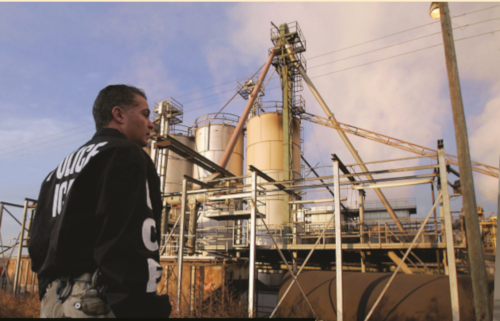What happens to the kids?

On Dec. 12, 2006, a large-scale operation was conducted by the U.S. Department of Homeland Security. They raided Swift & Company meat packing plants in Colorado, Massachusetts, and other locations nationwide, in search of workers residing in the U.S. illegally. Over 900 undocumented immigrants were arrested; immigrants whose countries of origin included not just Latin American countries like Mexico, Guatemala, Honduras, but also African countries such as Sudan and Ethiopia. What effect did these raids have on the families of the workers arrested? How did the kids feel when they came home and one or both parents were simply gone?
Raids, Families, and Fear
Hundreds of Latin American families were disrupted by the raids. According to a recent study, “500 children unexpectedly lost communication with one or both parents. Most of the children were legal citizens ages 10 or younger.” While some single parents were released late on the same day as the raids, others were held overnight or for several days or even weeks. In addition, many of the arrested parents were afraid to admit that they had children because they believed that immigration authorities would take their children into custody. Some parents were even denied permission to make contact with their families before being forced to leave the country.
Ana, a 14-year-old middle school student from Colorado, is still coping with the possibility that her family may have to return to Mexico. Her mother, Veronica, was an undocumented employee at the Swift Plant in Colorado. During the raid, Ana lost contact with her mother and did not know what to do.
“When I got back from school that day, my mom wasn’t home,” Ana said. “I was scared and fearful in my heart that I would be left alone, or forced to return to Mexico, leaving my friends behind.”
Deportation is a worry and a risk that undocumented workers face daily. For kids it’s even worse. Not only are they stressed about doing well in school but they are constantly worrying about their parents getting arrested. “I was so sad I couldn’t focus in school for weeks,” said Ana.

WHEN THE GOVERNMENT ARRESTS UNDOCUMENTED WORKERS, THEIR KIDS CAN FIND THEMSELVES SUDDENLY ALONE.
Looking for a Better Life
Ana moved to the United States a few years ago with her mother because her family needed additional income to pay medical bills. “My mother back in Mexico is very ill,” Veronica said. “She suffers from high blood pressure and kidney failure. I came to this country so I could earn money to send my mother the funds she needs since she’s always in the doctor’s office.”
The immigration officers who arrested Veronica, who has a clean legal record, gave her several dates for court appearances and later released her. She will find out in February 2009 whether or not she will receive legal residency in the United States. If she is forced to leave, her whole family will have to follow.
“To the immigrants who are undocumented, it is worth the risk of deportation because the vision of opportunity for their families in this country outweighs the punishment,” said Chris Garzia, a supervisor at the Cesar Chavez Center near the Swift plant.
Solutions?
Is there a way to help children and families cope? Can federal immigration officials conduct raids differently? A new paper by the National Council of La Raza, which studied the raids, has made several recommendations to the federal government to help lessen the trauma these arrests have on children:*
• Single parents of young children should be released early enough in the day so that their children do not experience disruptions in care; they should not be held overnight.
• Immigration officers should provide detainees access to telephones, and the confidentiality of their telephone conversations should be ensured.
• Schools should develop systems to help ensure that children have a safe place to go in the event of a raid, and to reduce the risk that children will be left without adult supervision when the school day ends.
It is going to be a long battle to resolve the situation involving undocumented immigrants. While many would like there to be an opportunity for hardworking, undocumented immigrants to gain citizenship, others believe that first the laws regarding the employment of illegal workers need to be better enforced. Until then, the welfare of the children and families of undocumented workers needs to be a top priority.
*The study, “Paying the Price: The Impact of Immigration Raids on America’s Children,” is available online at www.nclr.org (click on ‘publications’).
